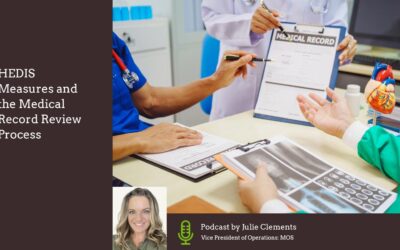In today’s podcast, Jessica Schwartz, one of our Solutions Managers, discusses glossary of some important personal injury terms.
Podcast Highlights
00:35 Important Terms Related to Personal Injury Cases
06:23 Attorneys can save time and money with Medical Record Review Services
Read Transcript
As every personal injury case is different, different legal terminologies will be involved. It is important for attorneys, medical review companies, plaintiff and defendant to be familiar with the terms associated with the litigation process. Check out the simple explanations for some common terms that may be relevant to personal injury cases.
00:35 Important Terms Related to Personal Injury Cases
Abstract of Title
The term refers to a record of all legal records and recorded documents related to a piece of real property. The abstract will include all transfers, liens, and legal actions that are connected to the property. Title rights give the owner access to the property, allow them to sell or transfer it to other parties; and enable them to enjoy and use the property legally.
Act of God
It refers to events that are out of human control, which includes natural events or disasters such as floods, hurricanes, earthquakes, tornado, tsunami, or even epidemics such as SARS or COVID-19. It does not happen through the negligence of another person.
Alternative Dispute Resolution
In a personal injury claim, alternative dispute resolution or ADR refers to a means for the parties to discuss a settlement of the claim without the need for a trial. The most common types of ADR are mediation, settlement conferences, neutral evaluations, and arbitration. ADR is becoming an increasingly popular approach to resolve personal injury cases, as it is less expensive, and less time-consuming than a trial.
Appeal
It refers to a legal proceeding, during which a case is requested to be brought before a higher court for review and to make the official legal decision. Claimants can appeal to the higher court to reverse the decision of a trial court when one party does not agree with the decision.
Arbitration
It is the hearing and settlement or negotiation of a legal dispute between the plaintiff and defendant by a neutral third-party mediator, whose decision will be final. It is often considered as a more efficient option to settle a claim than litigation.
Assignment of Benefits (AOB)
It is an agreement that transfers the rights or benefits by an insurance policy to a third party. An AOB gives the third party authority to file a claim, make repair decisions and collect insurance payments without the claimant’s involvement.
Bodily Injury
It refers to any damage or harm to a person’s body, which occurs as a result of an accident, negligence, or intentional act. Bodily injuries may range from bruises to cuts, nerve damage and loss of body parts.
Burden of Proof
It refers to the obligation of one party to prove their claim is truthful and accurate. In personal injury cases, the burden of proof lies with the plaintiff and they need to prove the other person’s negligence.
Claim Adjuster
Claims adjusters are insurance agents, who investigate insurance claims and determine the compensation that should be offered in those claims. They specifically handle liability claims on behalf of the insurance carrier.
Contingency Fee
It is a sum of money, typically one-third of the total amount of the compensation, that a personal injury lawyer receives as payment only if the case is won.
Contusion
Contusion or bruise is the damage to the body, in which blood capillaries are ruptured. It doesn’t break the skin and may result in discoloration.
Damages
Damages refer to either the amount of money awarded in a personal injury case or losses that a plaintiff has suffered. While monetary damages are subjective in value, including pain and suffering, punitive damages are intended to punish a defendant, which happens in extreme cases of negligence or intentional wrongdoing.
Demand Letter
It is a formal request that indicates that one party take action to compensate another, before filing a lawsuit in court.
Deposition
Deposition is a litigation process, a testimony or an interview conducted by an attorney outside of court during the discovery phase. The depositions are recorded with a court reporter during the discovery stage of the litigation process. Lawyers require deposition summary services to reduce the testimony to key facts, making it easy to analyze the strengths and weaknesses of the case.
Discovery
During this process, opposing parties obtain evidence from one another. Evidences may include interviews, document requests, information from medical exams, and more.
Duty of Care
It is a requirement that every person must exercise a reasonable amount of attention to avoid harming others. In a personal injury case, the plaintiff will try to prove that the defendant part breached the duty of care, resulting in the injury to the plaintiff.
Negligence
Negligence is the failure of a party to do something that meets the standard requirements that results in harm to another party.
No-fault
Commonly applied in auto accident personal injury cases, no-fault refers to a personal injury protection (PIP) insurance that provides first-party benefits for medical expenses, loss of income, funeral expenses, and more.
Wrongful death
A wrongful death is caused by the negligence of another person and the lawsuits are usually filed by the decedent’s family or beneficiaries.
06:23 Attorneys can save time and money with Medical Record Review Services
Personal injury law firms rely on professional medical review companies to save time and money. Such companies have reviewers who are well-trained in analyzing medical records and familiar with terminology related to personal injury lawsuits and court proceedings.
You can check out website for more.
Thank you for listening and we hope you have a good day!



